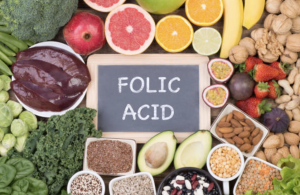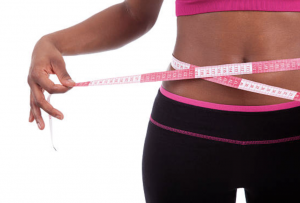There are many ways you can prepare for your pregnancy.
These simple tips on how you and your partner can improve your general health will ensure you not only have the best chance of getting pregnant, but will also help you maximise your chances of having a healthy pregnancy and delivery.
Folic Acid

Folic acid is a vitamin found in foods such as green leafy vegetables and fruits such as pawpaw, and is essential for growing a healthy baby.
Taking folic acid supplements daily for three months prior to conception and throughout your pregnancy is proven to reduce the chance of your baby getting Spina Bifida, a serious defect of the spine and skull.
Cigarettes & Alcohol
Both potential mothers and fathers are strongly advised to stop smoking and drinking when trying to conceive. For women, quitting helps to protect your egg levels and also reduce the chances of miscarriage, growth-restricted babies and bleeding in pregnancy. For both men and women, quitting smoking also reduces the chances of losing a newborn baby to sudden infant death, also known as cot death.
Cervical PAP smears
It is recommended that you are up to date with PAP smears before starting fertility treatment. You can get a smear done in all of T&T IVF & Fertility Centre clinics, or from your gynaecologist, local health centre, cancer society programme or family planning clinic.
Drugs and environmental factors
A detailed drug history, including drugs of abuse, will be taken from both partners when you first attend the T&T IVF & Fertility Centre clinic. All illegal and recreational drugs have a negative impact on fertility and their use is strongly advised against. Also advise your fertility specialists about any prescription drugs being used as these will also be checked for any potential negative effects on fertility or developing babies.
Having a healthy weight
 A healthy weight is important for getting pregnant and for having a healthy pregnancy. Working out your body mass index (BMI) is a good way to determine how healthy your weight is.
A healthy weight is important for getting pregnant and for having a healthy pregnancy. Working out your body mass index (BMI) is a good way to determine how healthy your weight is.
BMI = Your weight (kgs) / Your height (m) x 2
If you are overweight (BMI > 25) your chance of getting pregnant with fertility treatment is usually lower, whatever the cause of your infertility may be. Also, being very overweight (BMI > 35) poses additional risks during pregnancy. For these reasons, most fertility clinics will postpone fertility treatments until the BMI is acceptable (under 30). At the Trinidad & Tobago IVF & Fertility Centre, fertility treatment is generally not offered until the woman’s BMI is below 37. If you are underweight (BMI < 19), this can also cause problems.
Rubella virus immunity
Rubella is the virus that causes German measles. It is no longer very common as most children are given the MMR vaccine. Most German measles infections are harmless but if a pregnant woman catches the virus and it spreads through the placenta to infect the baby she is carrying, the rubella can have severe effects on her developing baby.
A simple blood test can show if a woman is immune to Rubella and therefore protected from spreading Rubella virus to a baby. If you are not immune then the MMR vaccine will give you this protection. The MMR is a live vaccine (containing protection to Measles, Mumps and Rubella viruses) and you should not get pregnant within 28 days of having the vaccine. The MMR vaccine is available at fertility clinics and also through health centres and family doctors.
Complementary therapies & other medicines
If you are using any complementary therapies or ‘over the counter’ medications, please let the fertility clinic know so that they can give you appropriate advice. ‘Herbal’ remedies are often seen as harmless, but it is impossible to know what is actually in the preparation. This is particularly true of some Chinese remedies and other local bush medicines that may contain quantities of heavy metals and other harmful substances. It is advised that these products should not be used unless they have been approved as being safe in pregnancy.
Coffee and caffeinated drinks
Drinking large amounts of coffee (six or more cups a day) has been shown to reduce fertility. The recommendation is to stay below 250mg of caffeine (one to two cups of coffee) daily. Remember that tea has as much caffeine as coffee, and also there are other hidden sources of caffeine in soft drinks such as Coke and Sprite. The highest levels of caffeine are found in ‘energy’ drinks such as Red Bull and Monster.

